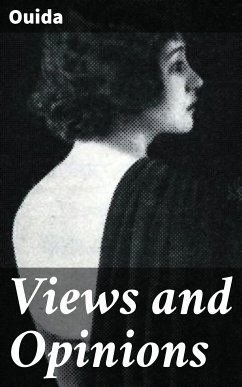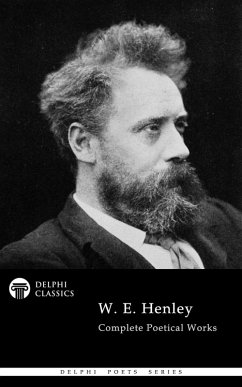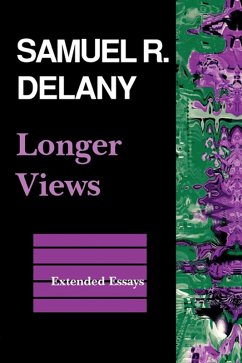
Views and Reviews (eBook, ePUB)

PAYBACK Punkte
0 °P sammeln!
Dodo Classics brings you another classic from Henry James, 'Views and Reviews.' "When you lay down a proposition which is forthwith controverted, it is of course optional with you to take up the cudgels in its defence. If you are deeply convinced of its truth, you will perhaps be content to leave it to take care of itself; or, at all events, you will not go out of your way to push its fortunes; for you will reflect that in the long run an opinion often borrows credit from the forbearance of its patrons. In the long run, we say; it will meanwhile cost you an occasional pang to see your che...
Dodo Classics brings you another classic from Henry James, 'Views and Reviews.'
"When you lay down a proposition which is forthwith controverted, it is of course optional with you to take up the cudgels in its defence. If you are deeply convinced of its truth, you will perhaps be content to leave it to take care of itself; or, at all events, you will not go out of your way to push its fortunes; for you will reflect that in the long run an opinion often borrows credit from the forbearance of its patrons. In the long run, we say; it will meanwhile cost you an occasional pang to see your cherished theory turned into a football by the critics. A football is not, as such, a very respectable object, and the more numerous the players, the more ridiculous it becomes. Unless, therefore, you are very confident of your ability to rescue it from the chaos of kicks, you will best consult its interests by not mingling in the game."
Henry James, OM, son of theologian Henry James Sr., brother of the philosopher and psychologist William James and diarist Alice James, was an American-born author, one of the founders and leaders of a school of realism in fiction. He spent much of his life in England and became a British subject shortly before his death. He is primarily known for a series of major novels in which he portrayed the encounter of America with Europe. His plots centered on personal relationships, the proper exercise of power in such relationships, and other moral questions. His method of writing from the point of view of a character within a tale allowed him to explore the phenomena of consciousness and perception, and his style in later works has been compared to impressionist painting.
James insisted that writers in Great Britain and America should be allowed the greatest freedom possible in presenting their view of the world, as French authors were. His imaginative use of point of view, interior monologue and unreliable narrators in his own novels and tales brought a new depth and interest to realistic fiction, and foreshadowed the modernist work of the twentieth century. An extraordinarily productive writer, in addition to his voluminous works of fiction he published articles and books of travel writing, biography, autobiography, and criticism,and wrote plays, some of which were performed during his lifetime with moderate success. His theatrical work is thought to have profoundly influenced his later novels and tales.
Dieser Download kann aus rechtlichen Gründen nur mit Rechnungsadresse in A, B, BG, CY, CZ, D, DK, EW, E, FIN, F, GR, H, IRL, I, LT, L, LR, M, NL, PL, P, R, S, SLO, SK ausgeliefert werden.













